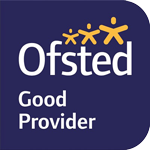Food & Cookery Overview
Our Vision
All students study food and nutrition from year 7 to 9 providing them with the fundamentals of nutrition and cookery. Our aim is to provide students with important life skills whilst also providing them the opportunity to study a Hospitality based course at GCSE and a Level 3 City and Guilds Professional Chef qualification at sixth form. These layers of provision allow students to experience a food journey which develops from the foundational skills and knowledge to a high-level employability qualification.
Curriculum Intent
Our food and cookery curriculum is carefully designed to provide a breadth of study to our students and incorporates a wide range of practical and theoretical learning experiences to develop students’ knowledge and skills and provide them with a wide breadth of learning. The curriculum covers:
- Nutrition and healthy eating
- Food safety and hygiene
- Cooking techniques and culinary skills
- Recipe development and adaptation
- Cultural and historical aspects of food
- Sustainability and ethical considerations
We are committed to ensuring that our students progress in their culinary abilities over time, from basic skills in lower years to more complex techniques and recipes in upper years. Our curriculum is carefully sequenced to enable students to build upon their prior knowledge, develop a range of cooking methods, and enhance their understanding of nutrition, food hygiene, and kitchen safety.
We strive to instill a positive attitude towards healthy eating in our students and through our curriculum’s inclusion of nutrition education students develop a deep understanding of the impact of food on their physical and mental wellbeing. They demonstrate informed decision making skills when selecting ingredients and are able to prepare meals which meet their nutritional needs. This learning helps equip students with the knowledge and skills they need to maintain a healthy lifestyle.
Key Stage 3:
At Aylesford we pride ourselves in teaching students essential life skills in the kitchen which provide them confidence and experience of a wide array of practical dishes as well as sound theory to allow them to apply these skills in other scenarios. By the end of year 9 our students have competent and safe cooking skills and knowledge. We have invested in modern, purpose-built kitchen facilities that are well-equipped with the necessary tools, equipment, and ingredients to enable students to engage in practical cooking activities and at KS3 our students enjoy regular use of our first-class cooking room based upon a domestic environment.
Students this year have cooked a range of dishes from curries and bhajis to pizza and cakes.
Key Stage 4:
Those who wish to continue studying the subject can complete a GCSE in Hospitality and Catering where they work at greater depth on many of the different toles in the wider hospitality industry, gaining experience in professional cooking, events, nutrition, menu planning and commodity work. Our students have the advantage of our state of the art Professional kitchen built in collaboration with the Savoy hotel in London. This provides them as real an environment as possible and they are encouraged to develop their skills in real world settings through catering for functions, groups of staff, governors, paying visitors and for some school events. This allows students to really develop their character and experience the reality of menu planning, budgeting and time management in the kitchen as well as the practical skills of cookery.
We value creativity and encourage our students to experiment with ingredients, flavors, and cooking techniques. Our curriculum provides opportunities for students to develop their own recipes, adapt existing ones, and explore a range of global cuisines. We believe that fostering creativity in the kitchen helps students to express their individuality, engage in problem-solving, and develop a sense of pride in their culinary achievements.
The course is not only based on practical cookery, there is also a theoretical element which is equally important and can equip them with the knowledge they will need in the wider industry. There is a journey of theories, experiments, testing, cooking and self evaluation which students undertake and they learn to write reports and menu plans as well as become managers and shape their own cooking.
With extra courses, clubs, trips and events it is never a quiet time in the food studies department!





